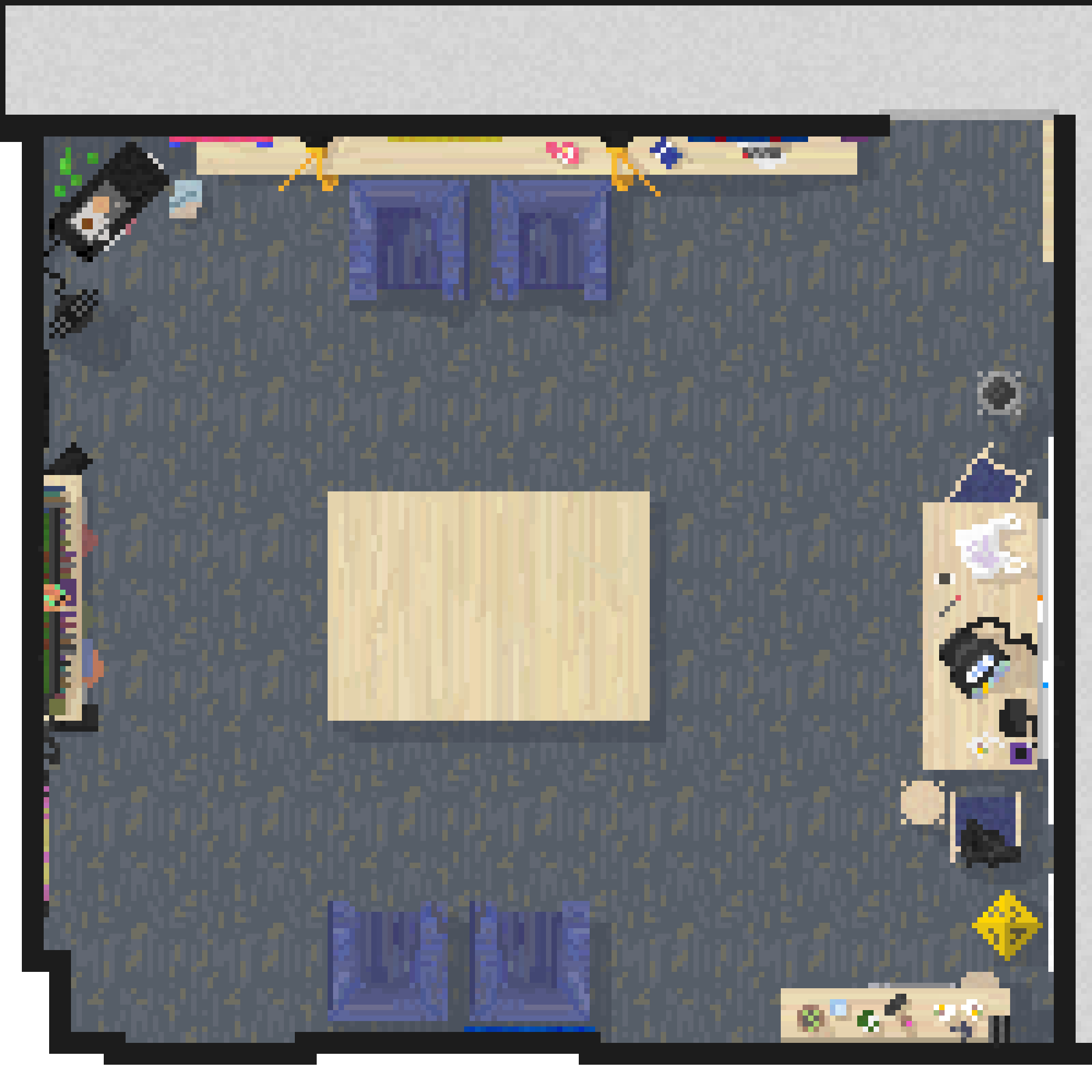Diagraphic is About Programming
At the end of the day, we are all here because we love to program. Whether it is complex, multi-tiered professional projects or small scripts to automate life, it has a place at Diagraphic. We encourage our developers to code and build whatever interests them - whether it is game development or social media. Below, you can find some passion projects and works-in-progress that our developers are working on in their spare time.
At the end of the day, we are all here because we love to program. Whether it is complex, multi-tiered professional projects or small scripts to automate life, it has a place at Diagraphic. We encourage our developers to code and build whatever interests them - whether it is game development or social media. Below, you can find some passion projects and works-in-progress that our developers are working on in their spare time.
-
TBD: An Educational Game
DevFest 2016 -
Politicolor
PennApps 2016 -
This House
2015 -
dnd.html
2015 -
Cumulus
2015 -
Mumblr
HackRU 2015 -
Defend The Lounge!
HackNY 2015 -
Rumblr
DevFest 2015 -
PTable
2014

TBD: An Educational Game
Coding is rapidly permeating our world through the technology that is at our fingertips. As a result, learning how to code is increasingly becoming as vital a skill as learning to read. But coding is not child-friendly - young children just do not think coding is fun. TBD (ironically named, of course) is built to solve that problem. By gamifying coding, TBD serves to make CS fun for small children. The game presents easy goals and helps children associate the actions they type with what happens on screen. The game is currently in its early stages - the major components (such as code evaluation and maze design) are in place, leaving only more complex level design and UI fine tuning. TBD was built in a single day at DevFest 2016, where it won "Best Hack by a new Hacker".Project Team: Nikhil Dominic

Politicolor
Twitter is the mouthpiece of the world, a data mine of the collective consciousness that is waiting to be explored. With the 2016 Presidential Election now underway, Twitter tracks real time information about how people feel in different counties and states - valuable information for anyone who wants to see how their favorite candidates are doing. Politicolor translates the information embedded in Twitter into an easy to follow chloropleth map that shows exactly how the country feels. Using a powerful self built Natural Language Processing System, Politicolor takes in every tweet it can get and converts those tweets into sentiments, represented by +1, -1, or 0. These sentiments are then converted into colors and mapped onto the US State Map. Politicolor was built in two days at Winter PennApps 2016, where it placed in the top 30 apps at the Hackathon.Project Team: Derek Hong, Amol Kapoor, Isabel Kim, Ganesh Ravichandran
This House
The world of college debate is one of fast moving arguments, strategic maneuvering, and quick thinking. Debaters need to be on their toes to quickly react to new ideas, while being able to develop strong stances that will withstand counter arguments. What better tool to assist them than a debate case generator? This House is an app that creates randomly generated debate cases. Built with American Parliamentary Debate in mind, This House is designed to allow debaters to practice thinking on their feet and to help case writers who have hit writers-block. Cases can range from the ridiculous to the plausible to the eerily accurate, and each new spin of the wheel is guaranteed to give something new.Project Team: Nikhil Dominic

dnd.html
One of the oldest games in history is getting revamped for the digital age. A simple program designed to solve a big problem in the Dungeons and Dragons world, dnd.html works to make life easier for everyone involved in the game at every level. Besides featuring a complete dice set generator - removing the need to carry and roll a ridiculous number of n-sided dice - the program also contains numerous tools for the Dungeon Master to help him make the game world move faster and, as a result, seem more realistic.Project Team: Adrian Garza

Cumulus
Cumulus is the cloud storage aggregator. It allows users to store their files across various cloud storage services. The main drive for this project was the simple interface: "one file in, one file out", no fiddling between cloud storage services and looking for a file. But that is the boring half. Cumulus does more than combine clouds, it actively looks for new storage space by using data storage in creative and hacky ways using the idea that all data is just bits. Images will get stored to soundcloud, videos and documents will be stored to Flickr, and .exes will be split and stored as file names or even youtube videos. Finally, Cumulus adds an innate layer of security due to its file storage protocol. Any file you store is broken up into blocks which are distributed across all services with which Cumulus is connected. Even if one service were to be breached, no useful data could be gained from the files that are stored there. Cumulus aims to combine the capacity of cloud storage services and provide an easy, secure mechanism with which users can store their files.Project Team: Amol Kapoor, Adrian Garza, and Ganesh Ravichandran

Mumblr
Mumblr is an orator's best friend - or worst nightmare. An app designed to teach public speaking, Mumblr uses a combination of natural language processing, Google Speech API voice recognition, and classical conditioning to teach individuals to stop relying on their crutch words while they speak. The app takes in user voice commands, checks against thousands of n-grams to give context to words, and then decides if the words are used correctly. If not, Mumblr will yell at the user - once per mistake. User's have the option to customize which words the app is looking for, to tailor it to their needs. Mumblr was the winner of "Best Use of a Google API" at Hack Rutgers Spring 2015. Though it is unlikely to continue being updated, it is currently up and linked above. Mumblr works best with a strong microphone and a fast internet connection (for the voice analysis, which is done over Google servers). Not all features currently online.Project Team: Adrian Garza, Amol Kapoor, Tyler Im, Amy Tong

Defend the Lounge
Defend the Lounge is a top-down 2d gratuitous violence simulator. Players navigate through a retro-inspired pixel art rendering of a dorm lounge at Columbia in an attempt to fight an ever-increasing army of Ganesh clones. When players come in contact with a Ganesh, they lose health. But if they manage to slay all of the villains in the round, they advance on to the next. After each successful bout, the game displays the scoreboard along with a random gif tagged "victory", thanks to the Giphy API. Defend the Lounge allows users to see their ultimate high scores. The game also features food powerups in the form of chicken tenders to restore health. How long will you be able to survive the scourge?Project Team: Adrian Garza, Amol Kapoor, Ganesh Ravichandran, Sophie Stadler

Rumblr
It originated from a discussion between friends. A bunch of freshmen, glued to their cell phones, their Smash 4 competitions on Wii, and their friendly swordfights in the hallway. This camaraderie, combined with a fierce competitive edge, could only lead to one thing: "What about Tinder, but for fighting?" Rumblr is a Google-integrated social competition service. Mature users age 18 and up simply connect their Google accounts to experience competition on a whole new level. Presently, the service allows users to connect with those in their immediate area, and then flip, Tinder-style, through profiles of those around them, and decide to Rumble them in the competition of their choice. Eventually, challengers will be able to define tags for types of Rumbles, which could be anything from video games to fistfights.Project Team: Josh Bartlett, Nikhil Dominic, Adrian Garza, Amol Kapoor, Tyler Im, Michele Lin, Ganesh Ravichandran, David Smart, Sophie Stadler

